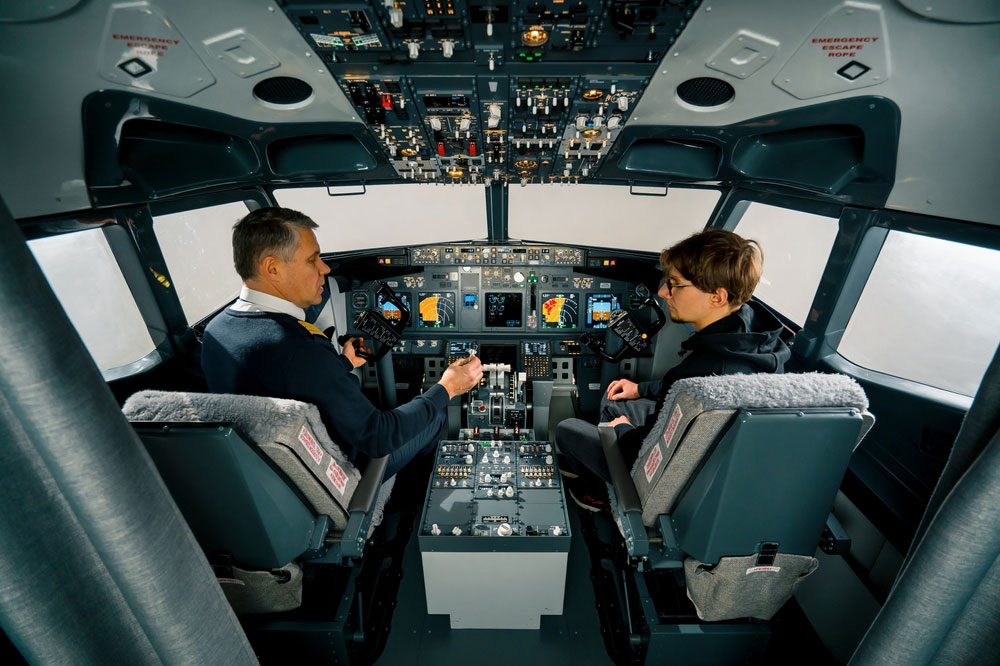Learning to fly demands focus, skill, and a serious commitment to safety. Whether you’re dreaming of weekend flights or a career in aviation, you must protect yourself during flight training with student pilot insurance.
Ingram Aviation Insurance specializes in helping pilots at every stage – including those just starting out. Here’s what you need to know about protecting yourself, your investment, and others while you train as a student pilot.
Why Student Pilots Need Insurance
Even if you train in someone else’s aircraft under an instructor’s supervision, that doesn’t mean you’re off the hook if something goes wrong. A flight school’s insurance policy may not fully protect you as a student, so you could be financially responsible for:
- Damage to the aircraft
- Injury to passengers or people on the ground
- Property damage
- Legal claims
A comprehensive student pilot insurance policy covers these risks, giving you peace of mind as you build your flight hours and skills.
What Student Pilot Insurance Covers
Student pilot insurance typically includes multiple options.
- Liability coverage: Protects you if you’re legally responsible for injuring someone or damaging property while operating an aircraft.
- Non-owned aircraft coverage: Also known as renter’s insurance, this policy covers damage to aircraft you do not own (such as the plane you’re training in). Many flight schools require this before you can solo.
- Medical payments: Defrays the cost for injuries sustained during training, whether you’re flying or assisting on the ground.
- Legal defense: Some policies include coverage for legal fees and representation if an accident leads to a lawsuit.
Ingram Aviation Insurance offers flexible policies tailored for students. Our team will help you compare options and choose coverage that balances cost, protection, and flexibility.
Safety Tips for Student Pilots
While insurance provides protection, it’s no substitute for safe flying habits. Here are some safety tips to follow as you earn your wings.
- Stay current on ground school: Understanding the theory behind flight helps you make better decisions in the cockpit.
- Know the aircraft: Familiarize yourself with the pilot’s operating handbook, checklists, and specifics of the plane you fly.
- Practice emergency procedures: Your training will include preparing for engine failure, radio failure, or unexpected weather. Consistent practice builds confidence.
- Avoid risky weather: Stay well within visual flight rules weather minimums and never feel pressured to fly in marginal conditions.
- Communicate clearly: Radio communication with air traffic control and your fellow pilots improves safety and builds professionalism.
Advice for Aspiring Private Pilots
Here’s how to set yourself up for success as you work toward your private pilot certificate:
- Choose a reputable flight school with FAA-certified instructors and a trustworthy safety record.
- Consistently log your flight hours to build proficiency.
- Budget for extras like charts, supplies, headsets, FAA exams, and insurance.
- Ask your school about insurance requirements early in the process.
- Build disciplined habits now – good safety practices start from Day One.
Why Ingram Aviation Insurance?
As aviation insurance specialists, Ingram Aviation Insurance understands student pilots’ unique needs. We will help you make informed decisions as you realize your ambitions of earning a pilot’s license.
When you work with us, you get:
- Expert guidance tailored to student pilots
- Flexible coverage options that grow with your flying experience
- Personalized service from a team that lives and breathes aviation
Ready to Take Flight?
If you’ve always dreamed of flying, make sure you have coverage that protects you along the way. Contact us today to explore student pilot insurance options that match your goals and budget.

